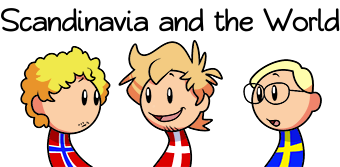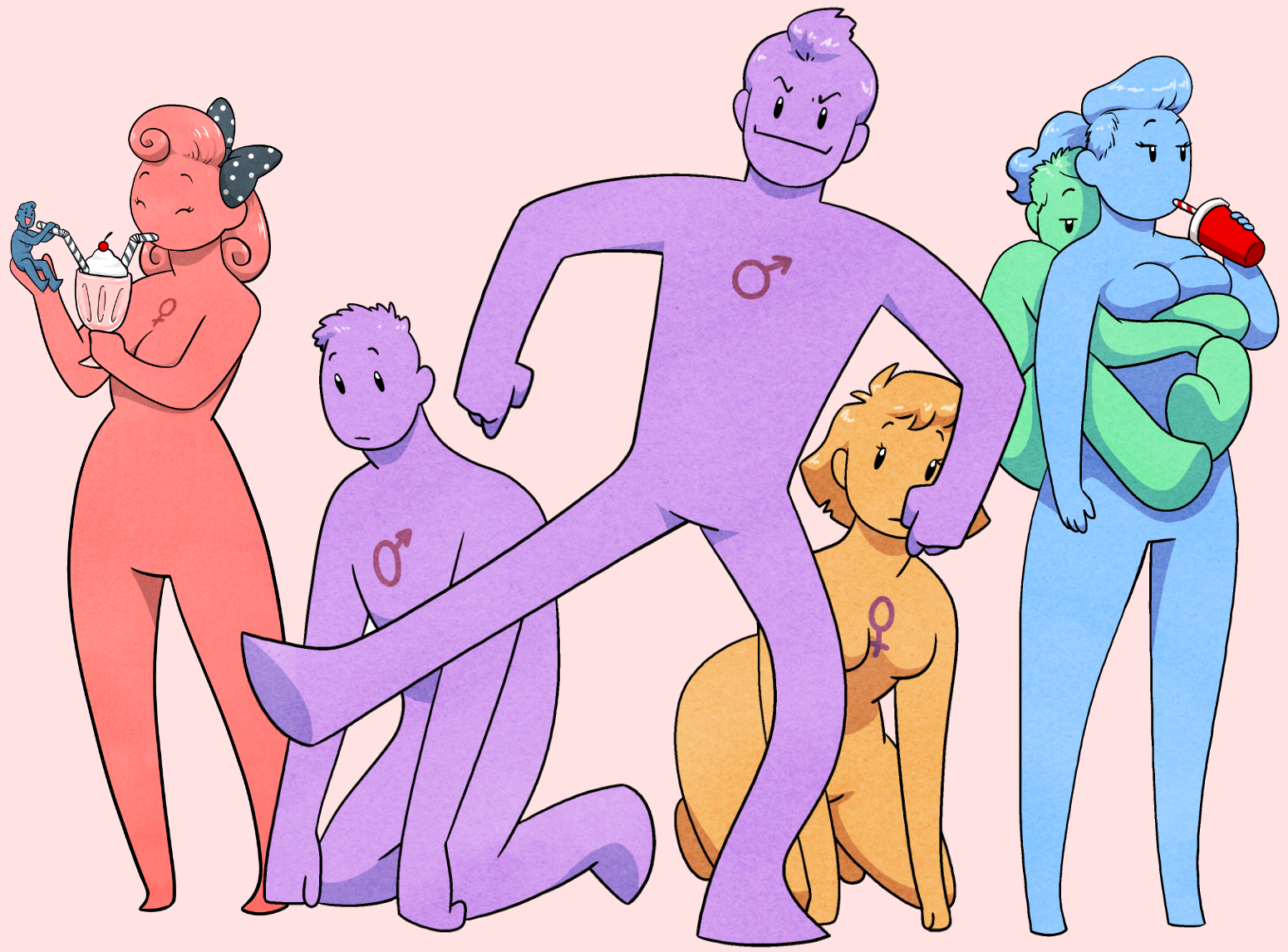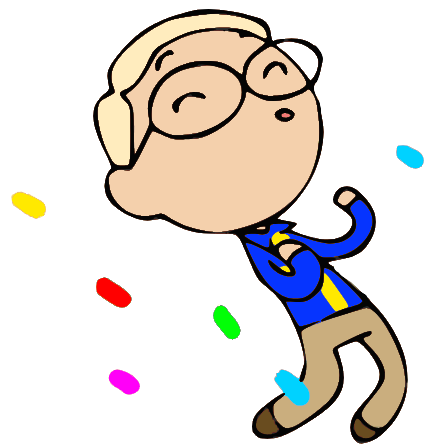
I Love You
The Nordics saying ”I love you” in their respective languages.
Norway really tries. No, the fish was not an accident. It’s supposed to be there. Fish and skis is the traditional getup for Norwegian men when trying to impress a lady. Flowers and bowties are just fancy modern stuff, but you gotta' keep with the time.
Inspired by this http://humon.deviantart.com/#/d2rnwtw
The little thing at Denmark’s feet is a ghost that will show up in a later comic. I had never drawn it before and doodled it on the top of the page, then realized that it would look cute next to Denmark here.
Sweden is giving Åland an USB key instead of flowers. Then America jump in pointing and yelling, “GEEKS!!!”
What? No, he wouldn’t yell that other thing. They’re not birds with long pink necks, silly head.
There’s a posibility that Iceland isn’t actually asexual, but self-sexual. We will never know, because the result is the same: We’re not getting a piece of him.
Finland with Sister Sweden because nobody else can make him say it. Yes, he has to be all special and say it in a way the rest of us don’t understand! >:C
Denmark Iceland Aland Finland Sweden Norway
18th June 2010
2 years ago #9881006
3
0
When a Finn says he or she loves you, it REALLY means something. We do not say "I love you" all nilly willy. We show our love with our actions. Saying it over and over is like just using same condom over and over. It soon becomes useless and full of holes and harmful even.
8 years ago #9724176
2
0
I can totally confirm that Finnish is way different than the other Nordic languages and English as well. One time, I tried to translate a Finnish word, and, I AM NOT JOKING, Google Translate came up with "Lawnmowers MoreHandwritten-Reaches and SeafeeSunnySunshineSunnyMonthlySunnySunnySnake." How hard can it be to translate ONE WORD?!
9 years ago #9629105
2
0
how to say i love you in sheep: baa baa
how to say i love you in ghost: uuuuuuu
how to say i love you in ghost: uuuuuuu
4 years ago #9868672
1
0
https://www.youtube.com/watch?v=OSacz4GHQjs&list=PL0IlcoPcGRpPAL9LSKVwswO5BHAw6-uj7&index=2
that is the only reason I know how to say those
that is the only reason I know how to say those
Add comment: Please Sign in or create an accout to comment.



 Support the comic on
Support the comic on 

















22